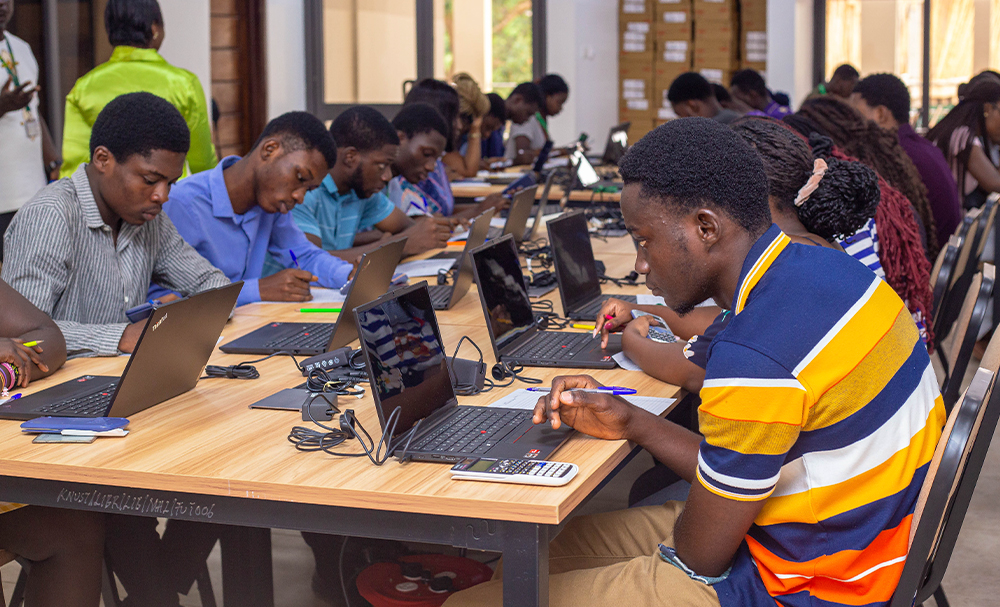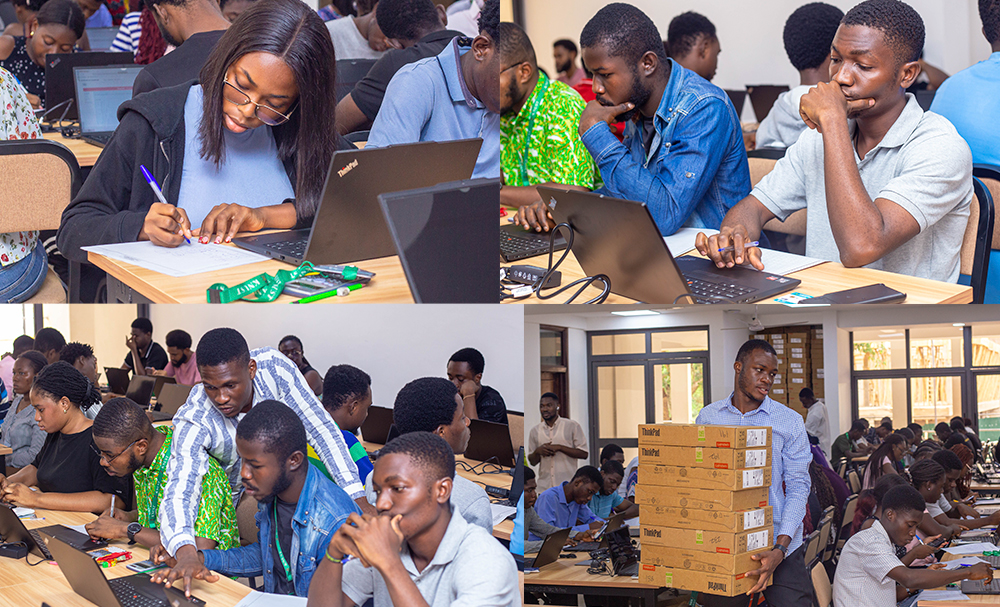The Kwame Nkrumah University of Science and Technology (KNUST) has expanded its Computer-Based Examination (CBE) system, marking a strategic shift towards digital assessments to ensure efficiency and security in the university's examination processes.
The university commenced its mid-semester examinations for the 2024/2025 academic year on Monday, February 24th, and they will continue until Friday, February 28th, 2025.
Speaking on the development, the Director of the E-Learning Centre, Professor Eric Appau Asante, highlighted that while KNUST has previously conducted computer-based examinations on a smaller scale, this year’s initiative represents a major upgrade.
Professor Asante mentioned that the university has converted the ground floor of the newly inaugurated Library Mall into a modern digital examination center.
This expansion, he said, allows more students to take their exams online while being physically present on-site.
Additionally, a team from the University Information Technology Services (UITS) was present to provide assistance and support to students who faced difficulties with their login credentials.
“For this session, we are seating 270 students at a time, and in this setting, the possibility of examination malpractice is significantly reduced,” Professor Asante stated. “Although the seating arrangement may appear close, we have ensured that each device offers protected privacy features, and no two students receive the same set of questions.”

He revealed that the university is exploring a hybrid model, where students could either use personal devices for examinations or rely on the institution’s growing repository of computers.
Professor Asante noted that to ensure a smooth transition, the university has provided training and guidance to students on the use of the virtual examination system. “All first-year students have undergone training through the E-Learning Centre to familiarize themselves with the virtual examination system. Additionally, student leaders and first-year course representatives have received sensitization on how to navigate the system and locate their designated centers,” he added.
Sharing his experience, Newton Kwame Godzo, a first-year BSc. Mathematics student described the system as user-friendly.
“The system was easy to access, and the internet connectivity was fast and efficient. I did not experience any difficulty navigating it because we had already been trained on how to use it. All I needed to do was log in with my credentials and take the Computing for Mathematics exam,” he said.


















